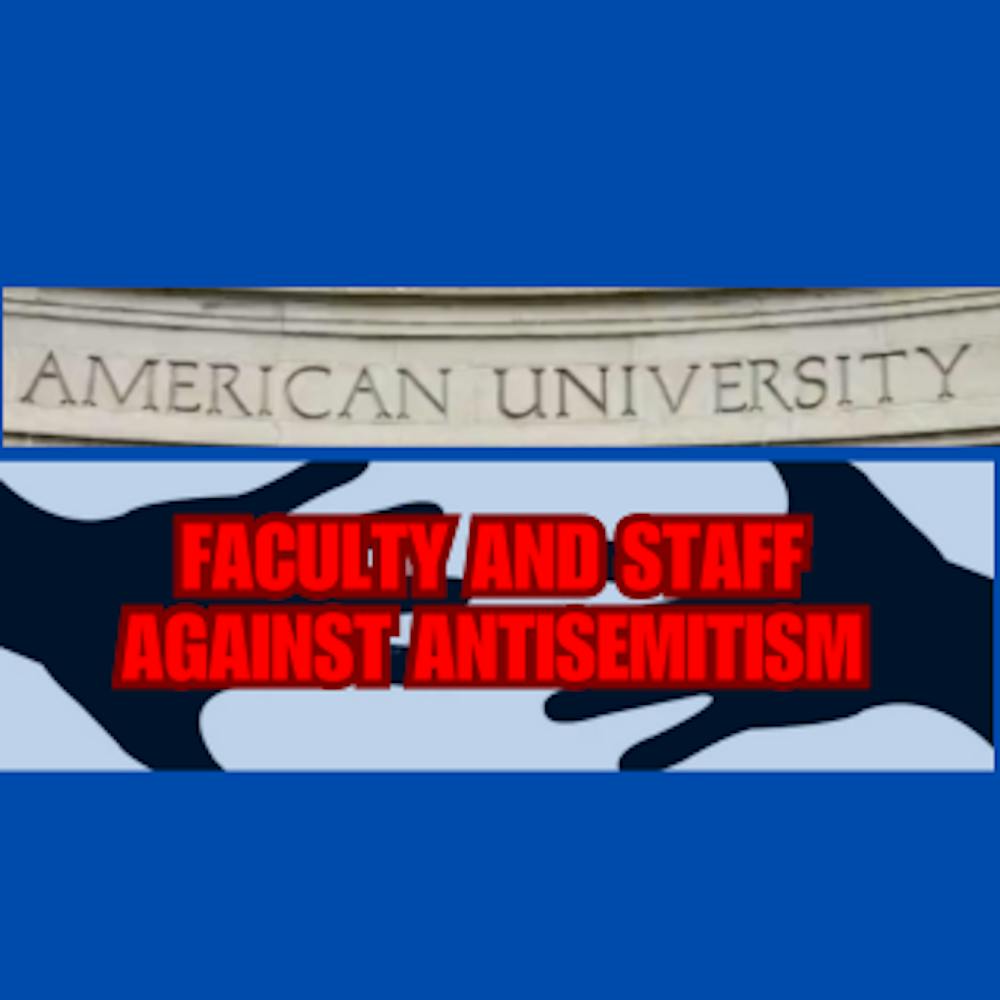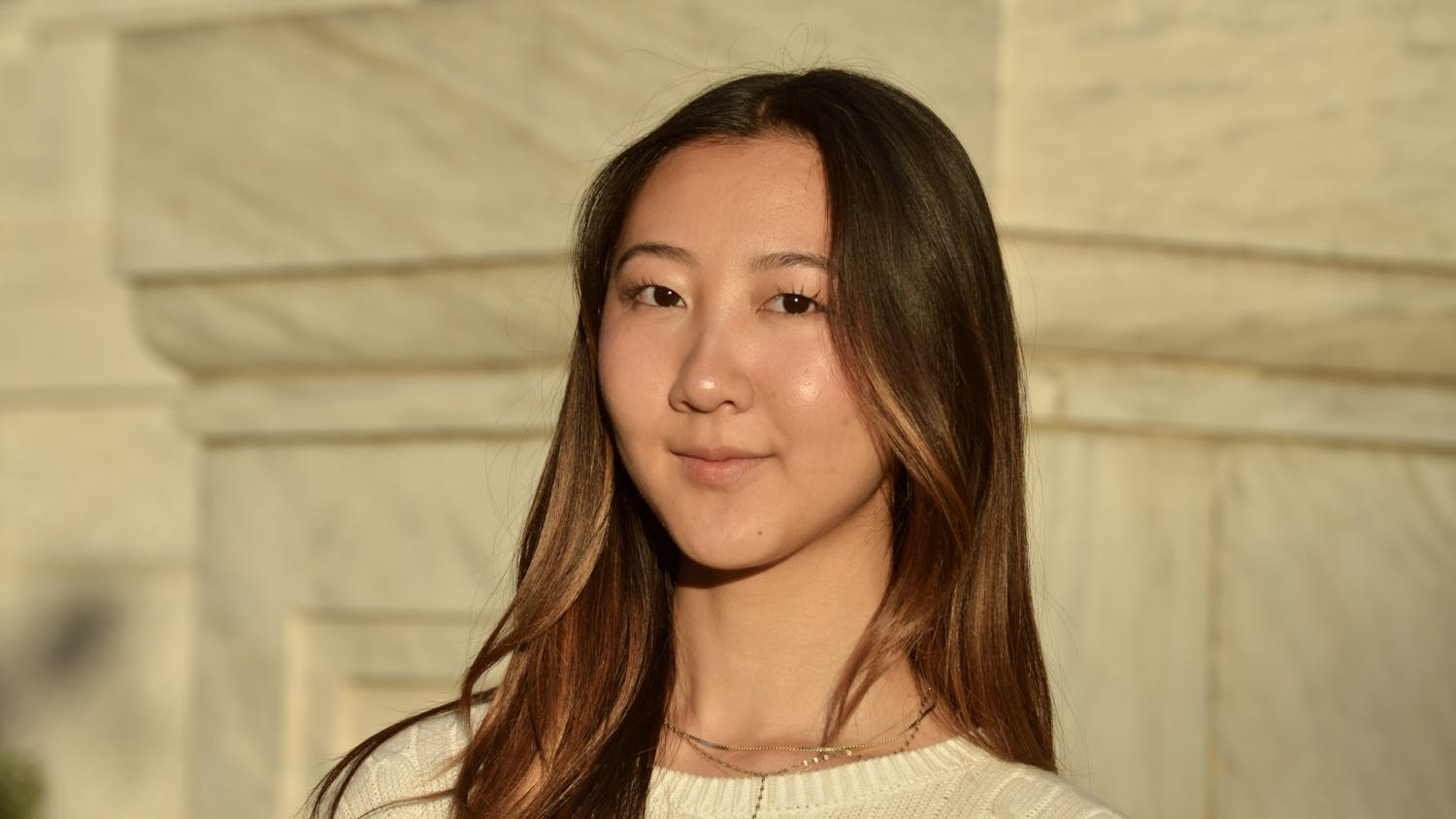The following piece is an opinion and does not reflect the views of The Eagle and its staff. All opinions are edited for grammar, style and argument structure and fact-checked, but the opinions are the writer’s own.
We should all be concerned when parts of our campus community are attacked for holding legitimate views with which many of our students and faculty identify. Among these legitimate views are those held by American University students, staff and faculty who believe that Israel has a right to exist. Some members of our campus are anti-Zionist, and they should also feel comfortable holding and expressing those views. But when the line between anti-Zionism and antisemitism is crossed and people and institutions who are part of the campus community are offended and publicly attacked, things become different — and the exchange of views is imperiled.
This happened recently on our campus when AU’s chapter of Students for Justice in Palestine reposted on their Instagram story a post with images claiming that Israel has trafficked organs of Palestinians. The story bore the heading, “This is Zionism.” Such dissemination of dangerous lies is hate speech. It is offensive and threatening to many Jewish and non-Jewish campus members who support Israel’s right to exist. These myths are reminiscent of the antisemitic blood libel accusing Jews of murdering Christian children and using their blood for ritual purposes. In various forms, blood libels appeared and reappeared over the centuries around the world: in medieval France, 19th century Syria and 20th century Nazi Germany. They were a central component in the development of modern antisemitism and all its deadly consequences.
It is the responsibility of faculty who advise student clubs to ensure that these clubs are not spreading antisemitic content. These faculty members should be aware of where to draw the line between legitimate political opinion and hate speech that amplifies dangerous lies and makes baseless accusations. They should also be aware that an atmosphere of violence has long been planted on this campus, where a student was threatened not because of his political views but because he is from Israel. The text read, “Death to Zionists – Hitler was right” on a poster for a piano recital with an Israeli AU student. Another flyer inviting the former United States ambassador to Israel was posted with red “blood” on the ambassador’s face. In another incident, a staff member expressed in a faculty and staff meeting, the Open Forum on AU Policies Related to Expression Confirmation on Aug. 8, 2024, their view that it was fair game to go after Zionists. More recently, flyers vilified University trustees and a poster for an event under the title of “Debunking Zionist Lies Workshop” used violent language (“Smash Zionism”) and imagery, which was especially threatening to students and faculty in light of recent acts of physical violence on U.S. campuses.
Similar posters reading “Crush Zionism” with images of a boot smashing the Jewish symbol of a Star of David were recently distributed by four individuals, most of whom are masked, at Columbia University who stormed into a class on the history of Israel and aggressively disrupted the teaching. Also at Columbia, students celebrated a student protester when he claimed, “Zionists don’t deserve to live.” At the adjacent Barnard College, students stormed an academic building, physically assaulting a school employee who had to be hospitalized. Violent language can quickly turn into physical violence.
In the U.S., we all have the right to criticize the political and military actions of any government. Many of us condemn Israel’s continued occupation of the West Bank and its military actions in Gaza. In Israel itself, hundreds of thousands of citizens go out on the streets to protest the government week after week — more than Americans protesting the actions of the Trump administration, which threaten democratic structures in this country. To criticize Israel’s politics has nothing to do with antisemitism. But to deny Israel’s right to exist because of its political leadership would be like Europeans denying the U.S. its right to exist because of its political leadership.
The Israeli-Palestinian conflict is complicated. It is inconsistent with our educational mission when campus organizations, whatever their political orientation, oversimplify and polarize it. The way a recent Eagle guest column by the AU Faculty and Staff for Justice in Palestine characterized Zionism as “a political ideology grounded in privileging the rights of one set of people over the rights of another” demonstrates this type of simplistic approach. Zionism was established as the movement to create “a home in Palestine for the Jewish people.”
There are many different types of Zionism, with a broad range of views about the coexistence of Jews and Palestinians. Many viewed Zionism as the liberation movement of the Jews — a liberation from antisemitism. It came into existence in the late 19th century as a counter-movement to the pogroms in Russia and the rise of antisemitic parties in Eastern and Central Europe. More directly, it was the response to the murder of six million Jews in Europe at a time when no country would allow Jews to immigrate to safety. Had Israel existed then, countless lives could have been saved.
Denying Israel’s right to exist directly affects the lives of almost half the world’s Jewish population. Just as the two million Palestinians of Gaza should not be forced to go anywhere, the eight million Jews of Israel are not going anywhere either. There are reasons their ancestors had to leave Warsaw and Berlin, and Cairo and Baghdad, where they were one-quarter of the local population until anti-Jewish violence broke out there during World War II. And there are obvious reasons why today’s Israelis cannot go back there or anywhere else.
The AU FSJP guest column stresses that there are also Jewish voices of anti-Zionism. Jews are known for having a broad breadth of opinions. But these are few voices; the vast majority of American Jews strongly support the existence of Israel and its right to defend itself. In a Pew study among American Jews in 2024, 93 percent said that the way Hamas carried out its attack on Oct. 7 is unacceptable.
The rights of both Jews and Palestinians for their sovereignty should be recognized. On our campus, this implies respect for each other, and not denouncing the other side and using violent language and imagery. Instead of staging anti-Zionist and anti-Palestinian campaigns that tear us apart, and instead of mischaracterizing members of our campus, let us engage in dialogue between the communities and discuss differences respectfully for the sake of a civic campus life.
Academia needs to be able to stand up against the delegitimization of Zionism and Israel, just as we need to stand up against those voices in America and Israel who are Islamophobic and deny Palestinians’ right to their state. To colleagues who call for a boycott of Israeli or Palestinian voices, we respond: There must be enough space to engage in a critical discourse about Israel and Palestine, teach classes with diverse points of view and listen to speakers with a broad diversity of opinions without delegitimizing each other, without engaging in hate speech and without using violent imagery. In academia, we are at our best when building bridges and not closing doors.
Unfortunately, those who use their megaphones to call for tolerance are often the least tolerant when asked to listen to other opinions, engage in dialogue with colleagues or accept that theirs is not the only truth. To parents and benefactors of our universities who are worried about campus antisemitism, we say that most professors are here to teach, and most students are here to learn. The reasonable voices are still the majority. They need to be empowered to speak up.
AU Faculty and Staff Against Antisemitism is an independent coalition of faculty and staff who educate and advocate against antisemitism on AU's campus.
This article was edited by Quinn Volpe, Alana Parker and Abigail Turner. Copy editing done by Olivia Citarella, Emma Brown, Nicole Kariuki and Hannah Langenfeld.
If you are a current American University student, faculty or staff member and want to submit a guest column, email us below!





